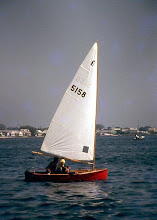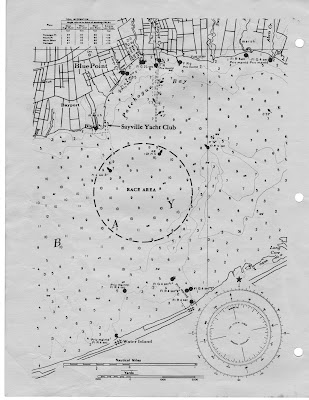Subscribe to:
Post Comments (Atom)
skip to main |
skip to sidebar


40º03'22.96" N 74º03'52.86" W
829 Southdrive

A New Jersey state of mind
Where'd I see that?
My Excuse

- Baydog
- New Jersey, Sailing, Food, Family, and anything I think is interesting at the time make up the contents of this blog. Bear with me, I'm still learning.
Where the Wind's Blowing
Racing on the Bay
Noodlehead
My Daily Bread
-
-
-
-
Making the Most of Winter’s Second Half2 weeks ago
-
-
-
Classic SJOGIN photos9 months ago
-
Ruhlman's Pea Soup1 year ago
-
-
Have A Great Weekend!3 years ago
-
-
-
-
-
-
-
-
-
-
-
-
-
-
-
-
-
-
Peru11 years ago
-
-
-
-































So we have learned that Carbon Fiber was rearing its beautiful head in 1978? When some guy named Jim Wagner was a mover and shaker at Sayville Yacht Club. I checked: SYC has been afloat all these years... (except for 1991)!
ReplyDeleteJW was a Metedeconk guy, just visiting LI for the regatta.
ReplyDeleteI used to transport 3 Sunfish like that!
ReplyDeleteSayville YC (even without JW) is a special place. May be going back there this year.
I'm waiting for a comment from O Dock regarding the Spanish word for capsize on my Dad's crash course on South American sailboat racing terminology.....
ReplyDeleteI have no idea about the derivation of either word, but here are my guesses.
ReplyDeleteCapsize sounds like one of those terribly polite English terms invented by the boys in their blazers, watching from the bar, whose only worry about getting wet was sloshing a poorly managed G&T.
Tumbado must have come spewing from the mouth of some poor soul who'd gone ass over teakettle one time too many, but who still wasn't giving up for the day.
And you thought I was going to mention a particular kind of boat, didn't you?
Didn't need to
ReplyDeleteAnd we never used the word 'capsized'. It was always 'flipped' or 'turned over'. When we flipped the E-scow, often the mast would get stuck in the mud, (after the buoyant wooden masts and before the CO2-charged masthead flotation devices). If we didn't get the boat upright quickly, the waves would drive the mast deeper into that mud and eventually bend it. When we got back to South Drive, we'd use one of the pilings on the dock in the header photo above as a fulcrum, and bend the mast back into shape. I remember doing that several times.
ReplyDeleteWell, I like tumbado.
ReplyDeleteIt sounds like the perfect thing to yell when some smarty pants has gone out with more sail up than he had any good reason to.
And on E-Scows, I'd guess that is most of the time.
Tumbado is a perfectly good Spanish word meaning lying down, felled or sprawled. The origin of capsize in English is obscure but it might be from the Spanish capuzar which means to sink (a ship) by the head. According to the Google the correct Spanish verb for capsize is zozobrar.
ReplyDelete